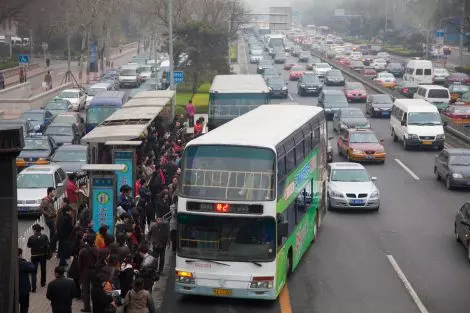Our prospective studies are carried out in collaboration with high-level academic experts. These research partnerships allow us to deepen our understanding of problems considered as priorities in relation to the Institute's areas of work.
This in-depth work produces new knowledge on major issues in the field of the environment, economy and society.

► 2001: Measuring the environmental performance of cities
By 2050, more than 80% of the world’s population will live in urban areas. To meet the environmental challenges posed by this historic shift, cities—as key players in enabling sustainable change—will need to cut pollution levels and use resources more efficiently. They will need reliable tools to measure their environmental performance.
Defining the sustainable city, evaluating the urban environmental footprint, designing relevant metrics… These are the aims of this study on the measurement of urban environmental performance, conducted by the Institute at the request of the United Nations Environment Programme (UNEP).

►2011-2012: The carbon footprint of urban transport – case study: Mumbai
Developing “cleaner” urban transport systems—systems that emit less CO2—is an urgent issue in sustainable development. Estimating their carbon footprint is a key step towards reducing their emissions. The aims of this study are twofold: to foster the emergence of sustainable mobility plans, and to facilitate access to carbon finance to implement them.

► 2008-2009: Comparative carbon footprints of European cities
The importance of urban environmental policy and its influence on climate change is beyond doubt. Urban areas have a fundamental role to play in reducing greenhouse gas emissions, in Europe and around the world.
Cities need the right tools to establish an inventory of GHG emissions,
but the results of existing analyses are not always commensurable.


